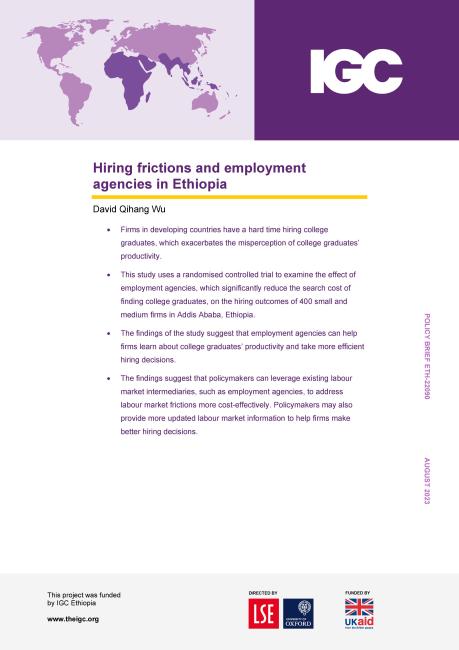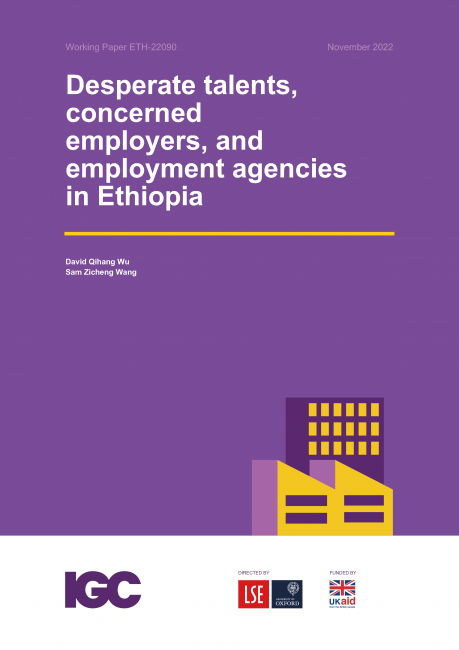Effects of labour market intermediaries on hiring frictions: Evidence from Ethiopia
This research proposes collaborating with 100 legal labour agencies in Addis Ababa to assess the impact of labour market intermediaries in hiring outcomes, such as the time taken to hire, the productivity of recruited workers, and the on-the-job effort demonstrated.
Labour market intermediaries (LMIs) play a crucial role in developing countries' labour markets by addressing key frictions. In Ethiopian, LMIs are hypothesised to primarily aid firms in overcoming costly hiring processes and managing high worker turnover. The hypothesis suggests that while LMIs expedite and reduce the expense of hiring by promptly supplying workers, they may not enhance screening for inexperienced candidates or mitigate moral hazard.
To investigate these claims, the research proposes collaborating with 100 legal labour agencies in Addis Ababa, Ethiopia. The methodology involves sampling 1,000 recent job vacancies, conducting baseline surveys with employers, and selecting a random subset of 500 vacancies for further analysis. Enumerators will present these vacancies to LMIs and assess their impact on hiring outcomes, such as the time taken to hire, the productivity of recruited workers, and the on-the-job effort demonstrated.




